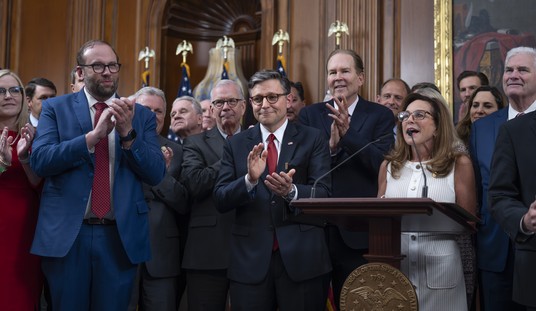One day in 2012, Charles Craig and David Mullins entered Jack Phillips’ Masterpiece Cakeshop in Lakewood, Colorado, to order a wedding cake. Phillips, a Christian and self-described “cake artist” who custom-designs cakes for various occasions, politely declined, citing his religious beliefs.
Having previously, in the words of his lawyer, refused to bake cakes for Halloween, or with anti-American, anti-family, or what he considered profane messages, Phillips also would not design a cake to celebrate an event in violation of his understanding of Leviticus XX, 13.
Craig and Mullins promptly filed a complaint alleging discrimination on the basis of their sexual orientation with the Colorado Civil Rights Commission. The commission ruled that Phillips must be compelled to provide wedding cakes equally celebrating any kind of union, or get out of the business.
The basis of the ruling is a Colorado law that prohibits businesses open to the public from discriminating against anyone on the basis of race, religion, “gender,” or sexual orientation. Twenty other states have similar laws.
Phillips has appealed to the Supreme Court on the grounds that the Colorado law infringes his right to the free exercise of his religion. Two years ago, the Supreme Court declined to hear a similar appeal filed by a New Mexico photographer who refused service for a same-sex ceremony; but it has agreed to hear this one.
The case has been widely covered from a Christian point of view, which is understandable, since Christianity is the religious worldview that Phillips professes. But the implications of the ruling by the Orwellian Colorado Civil Rights Commission are far broader than that. So Agudath Israel of America, a 94-year-old Orthodox Jewish advocacy organization, has filed an amicus curiae brief in the case (full disclosure: I have the honor of serving as the Midwest regional vice president of the Aguda).
The brief, which can be read in its entirety here, formulates the question:
Will our society honor the guarantees of the Free Exercise Clause when a religious practice is based upon a moral judgment that is anathema to the contemporary zeitgeist?
It then goes on to document the uniqueness of the American experience in Jewish history and the resultant compelling interest of the Aguda in the outcome of this case. As a summary of its argument, the brief cites the words of Justice William J. Brennan, Jr., from 56 years ago:
“[T]he issue in this case … is whether a State may put an individual to a choice between his business and his religion. … [S]uch a law prohibits the free exercise of religion.” Braunfeld v. Brown, 366 U.S. 599, 611 (1961) (Brennan, J., concurring and dissenting).
The brief notes numerous examples in which Jewish practices have been infringed, restricted, and prohibited in foreign countries. For example, Jewish law not only limits the species of that which can be consumed, but also mandates the method of slaughter that must be pursued for the meat to be kosher. Yet in Belgium, Denmark, New Zealand, Norway, Sweden, and Switzerland, all countries with a Jewish population, the practice is prohibited. Indeed, the UK recently made a serious attempt to ban the practice there.
As another example: Jewish law requires circumcision of all male babies on the eighth day of their lives, except under certain unusual circumstances that might endanger the baby’s life. Yet, on October 1, 2013, the Parliamentary Assembly of the Council of Europe adopted a resolution terming the practice a “violation of the physical integrity of children.” In May 2012, a regional appellate court in Cologne, Germany, ruled that religious circumcision amounted to bodily injury and was hence a criminal offense. Some months later, the Bundestag reversed this decision and promulgated a federal law permitting the practice for religious reasons.
But the attempt had been made.
A further example, and one that hits very close to home, is the case of the Vishnitz Girls School in the UK. In 2013, the Office for Standards in Education, Children’s Services, and Skills (OFSTED) visited the Orthodox Jewish primary school and passed it with flying colors. OFSTED highlighted the excellence of the commitment of teachers and staff to the pupils’ welfare and development.
That was before the British redefinition of “marriage.”
This year, OFSTED revisited the campus. While again noting the excellence of the curriculum and the fact that the girls were “confident in thinking for themselves,” the school was failed because of one issue:
Pupils are not taught explicitly about issues such as sexual orientation. This restricts pupils’ spiritual, moral, social and cultural development and does not promote equality of opportunity in ways that take account of differing lifestyles. As a result, pupils are not able to gain a full understanding of fundamental British values.
The school is in imminent danger of losing its accreditation and being shut down.
As the brief goes on to note, the sole major difference between all of these jurisdictions and that of the United States is that none of them have the Free Exercise Clause — but we do.
The brief then goes on to point out that, until quite recently, the sexual mores and standard of public morality in the United States were generally congruent with the principles of Biblical morality which have informed Jewish life for over 3,300 years, since the encounter at Sinai. As recently as 1986, in Bowers v. Hardwick, the United States Supreme Court ruled that a Georgia law criminalizing sodomy was constitutional. In 1996, Congress overwhelmingly passed the Defense of Marriage Act — mandating that the federal definition of marriage was the union of one man and one woman — by a vote of 342-67 in the House and 85-14 in the Senate. President Clinton signed it into law.
Nothing in the Constitution changed between 1996 and the Obergefell decision of 2015; there had been no new amendment proposed, let alone ratified. What had changed was a seismic shift in the nation’s zeitgeist. A consensus had formed among the intellectual elite that homosexual activities were just another form of sex, and that same-sex unions were just another kind of “marriage.”
But Jewish law, based on the timeless principles handed down at Sinai, does not have this flexibility and cannot accept the change.
Moreover, it is a principle of Jewish law that one may not aid or abet an action which is prohibited, and so an Orthodox Jewish baker would be subject to the same strictures as Mr. Phillips.
Mullins has given interviews in which he says that the issue was never merely about a wedding cake, and of course he is right. There are any number of other bakers who would gladly take their business. The issue is also not one of tolerance.
It is of dominance.
The LGBT agenda seeks to impose its warped views on all of us. As Erick Erickson states it in the title of his book: You Will Be Made to Care. No less a personage than the speaker of the British Parliament recently said:
I feel we’ll only have proper equal marriage when you can bloody well get married in a church if you want to do so without having to fight the church for the equality that should be your right.
Or in a synagogue. Which is precisely the point of the appeal and the amicus brief.









Join the conversation as a VIP Member